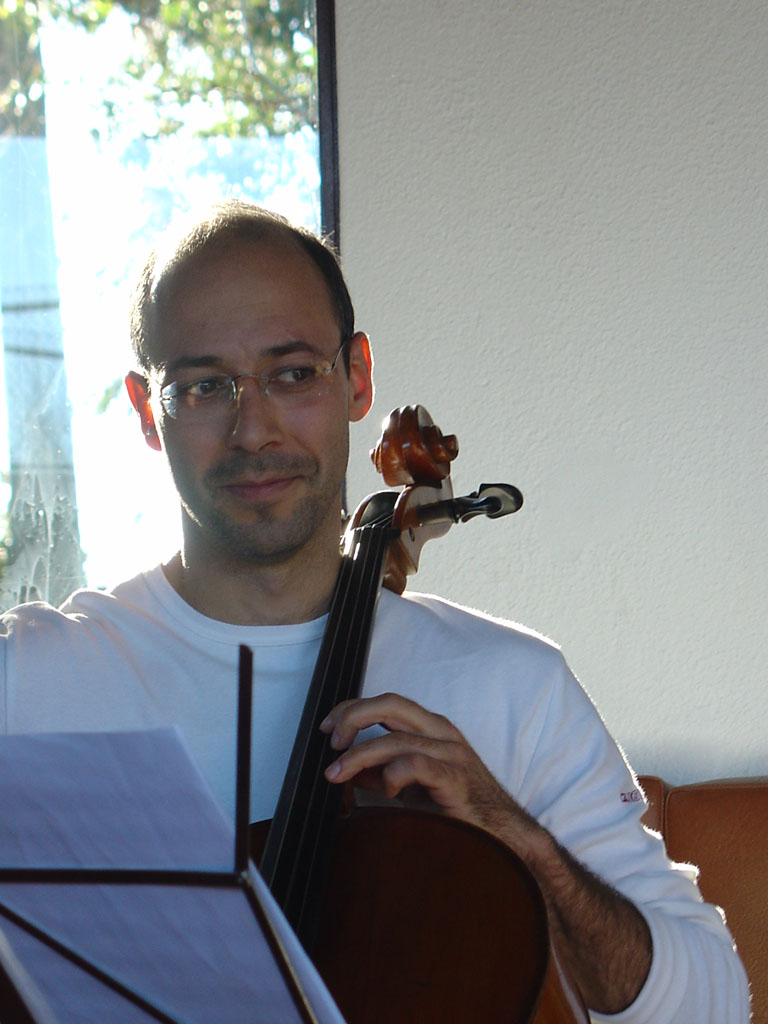- Comment on A One-way Speed of Light Experiment (2009) [Updated 1 decade ago]
- The conceptualization of time and the constancy of the speed of light (2008) [Updated 1 decade ago]
- Special Relativity in Absolute Space: from a contradiction in terms to an obviousness (2006) [Updated 7 years ago]
- Is the assumption of a special system of reference consistent with Special Relativity? (2005) [Updated 7 years ago]
- Comment on A One-way Speed of Light Experiment (2009) [Updated 1 decade ago]
A recent paper published in Am. J. Phys. describes an experiment designed to measure the one-way speed of light.1 Although the experiment is very interesting, in particular to be used in student laboratories, it is in fact determining the two-way speed of light.
- The conceptualization of time and the constancy of the speed of light (2008) [Updated 1 decade ago]
In this work we show that the null result of the Michelson-Morley experiment in vacuum is deeply
connected with the notion of time. It can be deduced without any mathematics only from the
assumption that all good clocks can be used to measure time with the same results, independently
of the machinery involved in their manufacturing.A second important assumption, intrinsic to the very notion of time, is that clocks measure time
in the same way in different frames, i.e., the notion of time is the same in all inertial frames. Under
this assumption, we point out that the “postulate” of constancy of the “two-way” speed of light
in vacuum in all frames independently of the state of motion of the emitting body is also strongly
related to the concept of time, together with the existence of a limit speed in the “rest frame”. This
postulate simply results from the construction of clocks where tic-tacs are made by objects traveling
with the limit speed. - Special Relativity in Absolute Space:
from a contradiction in terms to an obviousness (2006) [Updated 7 years ago]
This work deals with the questions of absolute space and relativity. In
particular, an alternative derivation of the effects described by special
relativity is provided, which is based on a description that assumes a
privileged reference frame. The present theory follows the ideas of Lorentz
and Poincar?, abandoning a strict view of Einstein’s “equivalence” of all
inertial frames. The meaning of the Principle of Relativity is discussed and
elucidated, and it is shown that it is not incompatible with the existence of a
preferred, absolute, frame.Most scientists nowadays still consider the basic assumptions of the theory
proposed here to be plain wrong. Moreover, they tend to see an irreconcilable
conflict between the Lorentz-Poincar? and the Einstein-Minkowski
formulations. However, as stated by John Bell [Bell1988], although there is a
stringent “difference in philosophy” between both views, “the facts of physics
do not oblige us to accept one philosophy rather than the other”. The validity
of Bell’s assertion is unambiguously demonstrated, and it is shown how and
why both approaches do indeed agree in the description of (most of?) the
physical phenomena. Evidently, the physical meaning of the different
physical quantities – such as “time”, “speed”, “simultaneity” and
“synchronization” – is quite different in both programmes. And yet, for
perplexing it may look at first sight, the present theory, developed under the
Lorentz-Poincar? assumption of a preferred reference frame, somehow
encompasses Einstein’s theory. There is no conflict, as there is one theory.It must be conceded that what is said in both formulations seems to be
contradictory, but this is essentially related to a demanding problem of
language. As a matter of fact, it is revealed that what special relativity says is
not what usually it is thought it says. By the use of a correct and precise
language, problems and paradoxes are immediately avoided. Interpretation
problems only arise because words are used in a sense that is often not correct
under the chosen description. The core of the problem is related to the largely
debated question of synchronization of distant clocks. It is stressed that
reality is not changed by the choices one makes to describe it, so it is not
changed by the particular way in which the clocks have been set. - Is the assumption of a special system of reference
consistent with Special Relativity? (2005) [Updated 7 years ago]
In a previous work we have shown that the null result of the Michelson-Morley
experiment in vacuum is deeply connected with the notion of time. The same is true
for the the postulate of constancy of the two-way speed of light in vacuum in all
frames independently of the state of motion of the emitting body. The argumentation
formerly given is very general and has to be true not only within Special Relativity
and its ‘equivalence’ of all inertial frames, but as well as in Lorentz-Poincar´e scenario
of a preferred reference frame. This paper is the second of a trilogy intending to revisit
the foundations of Special Relativity, and addresses the question of the constancy
of the one-way speed of light and of the differences and similarities between both
scenarios. Although they manifestly differ in philosophy, it is debated why and how
the assumption of a “special system of reference experimentally inaccessible” is indeed
compatible with Einstein’s Special Relativity, as beautifully outlined and discussed
by John Bell [1]. This rather trivial statement is still astonishing nowadays to a
big majority of scientists. The purpose of this work is to bring such assertion into
perspective, widening the somewhat narrow view of Special Relativity often presented
in textbooks.



